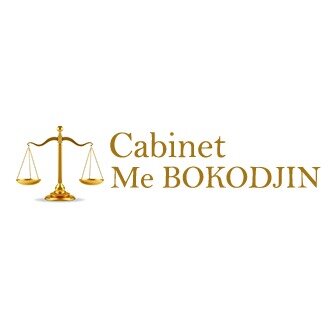Best General Litigation Lawyers in Togo
Share your needs with us, get contacted by law firms.
Free. Takes 2 min.
Or refine your search by selecting a city:
List of the best lawyers in Togo
About Litigation Law in Togo:
Litigation law in Togo refers to the legal process of resolving disputes between individuals or entities through the court system. This can include civil, commercial, criminal, and administrative cases. Litigation involves presenting a case before a judge or jury to determine the outcome based on evidence and legal arguments.
Why You May Need a Lawyer:
You may need a lawyer in Togo for various reasons, such as:
- Filing a lawsuit or defending against one
- Resolving disputes with business partners or employees
- Negotiating settlements or plea bargains
- Understanding your legal rights and obligations
Local Laws Overview:
In Togo, litigation is governed by the Code of Civil Procedure, the Criminal Code, and other relevant statutes. The legal system in Togo is a mix of French civil law and customary law. It is important to understand the local laws and procedures when engaging in litigation in Togo.
Frequently Asked Questions:
Q: What is the legal system in Togo?
A: Togo follows a civil law system based on French legal principles.
Q: How long does a typical litigation case take in Togo?
A: The duration of a litigation case in Togo can vary depending on the complexity of the case and court backlog, but it can take several months to several years to resolve.
Q: Can I represent myself in court in Togo?
A: Yes, you have the right to represent yourself in court in Togo, but it is highly recommended to seek legal assistance to navigate the legal process effectively.
Q: What are the common types of litigation cases in Togo?
A: Common types of litigation cases in Togo include contract disputes, property disputes, employment disputes, and criminal cases.
Q: How can I find a qualified lawyer in Togo?
A: You can contact the Togolese Bar Association or seek recommendations from friends, family, or colleagues to find a qualified lawyer in Togo.
Q: Is mediation or arbitration common in resolving disputes in Togo?
A: Yes, mediation and arbitration are common alternative dispute resolution methods in Togo and are often used to resolve disputes outside of the court system.
Q: Are legal fees in Togo expensive?
A: Legal fees in Togo can vary depending on the complexity of the case and the lawyer's experience. It is advisable to discuss fees and payment terms with your lawyer upfront.
Q: Can I appeal a court decision in Togo?
A: Yes, you have the right to appeal a court decision in Togo to a higher court if you believe the decision was incorrect or unfair.
Q: Can I sue the government in Togo?
A: Yes, you can sue the government in Togo, but there are specific procedures and limitations when suing a government entity.
Q: How can I prepare for a litigation case in Togo?
A: To prepare for a litigation case in Togo, gather relevant documents, evidence, and witnesses to support your case. It is also essential to consult with a lawyer to understand your legal rights and options.
Additional Resources:
For additional resources related to litigation in Togo, you can contact the Togolese Bar Association or visit the Ministry of Justice website for legal information and assistance.
Next Steps:
If you require legal assistance in Litigation in Togo, it is recommended to consult a qualified lawyer who can provide guidance and representation throughout the legal process. Be sure to gather all relevant documents and information related to your case before meeting with a lawyer to discuss your options.
Lawzana helps you find the best lawyers and law firms in Togo through a curated and pre-screened list of qualified legal professionals. Our platform offers rankings and detailed profiles of attorneys and law firms, allowing you to compare based on practice areas, including General Litigation, experience, and client feedback.
Each profile includes a description of the firm's areas of practice, client reviews, team members and partners, year of establishment, spoken languages, office locations, contact information, social media presence, and any published articles or resources. Most firms on our platform speak English and are experienced in both local and international legal matters.
Get a quote from top-rated law firms in Togo — quickly, securely, and without unnecessary hassle.
Disclaimer:
The information provided on this page is for general informational purposes only and does not constitute legal advice. While we strive to ensure the accuracy and relevance of the content, legal information may change over time, and interpretations of the law can vary. You should always consult with a qualified legal professional for advice specific to your situation.
We disclaim all liability for actions taken or not taken based on the content of this page. If you believe any information is incorrect or outdated, please contact us, and we will review and update it where appropriate.
Browse general litigation law firms by city in Togo
Refine your search by selecting a city.










